24 Reasons Why Soccer Is The Hardest Sport
If you are wondering why soccer is the hardest sport – this is for you.
Soccer, often hailed as the beautiful game, is not only a test of skill and athleticism but also a formidable challenge on multiple fronts.
Beyond the physical exertion and tactical acumen required, soccer demands a significant emotional and mental investment from its players.
In this article, we explore why soccer is widely regarded as one of the hardest sports in the world, delving into the physical, mental, tactical, and emotional demands that set it apart.
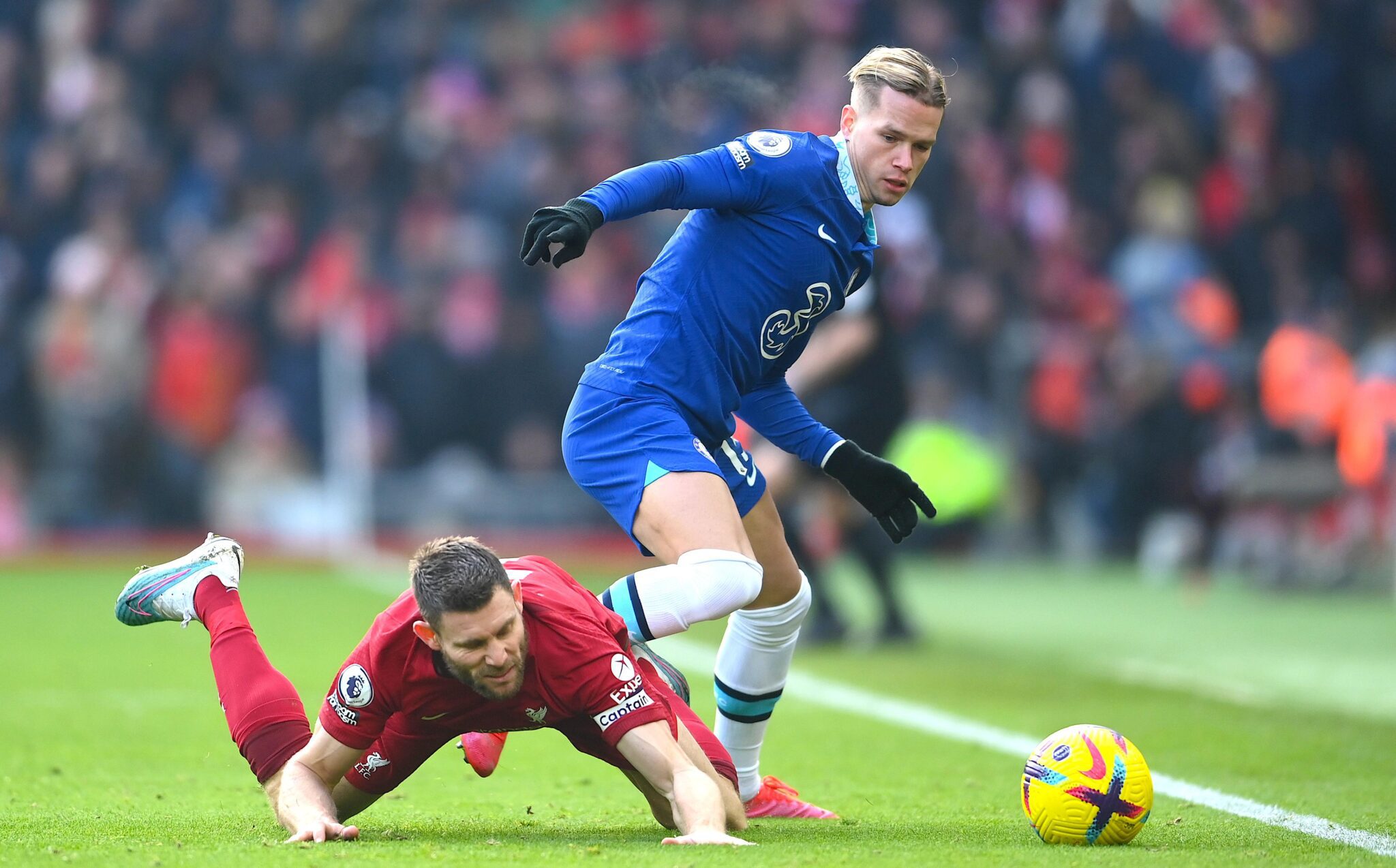
Why Soccer Is The Hardest Sport
In this article, you can read through all 5 sections or skip ahead to the topics that are most important to you. Make sure to stick around until the end, watch the video tutorial, and get your special free gift that is guaranteed to make you a better player.
- Reasons why soccer is the hardest sport
- Why soccer is the hardest sport in the world
- Why soccer is one of the hardest sports
- Why is soccer the hardest sport to play
- How to become a better soccer player, improve faster & achieve more
I hope this article gives you all you need about why soccer is the hardest sport – Let’s get started!
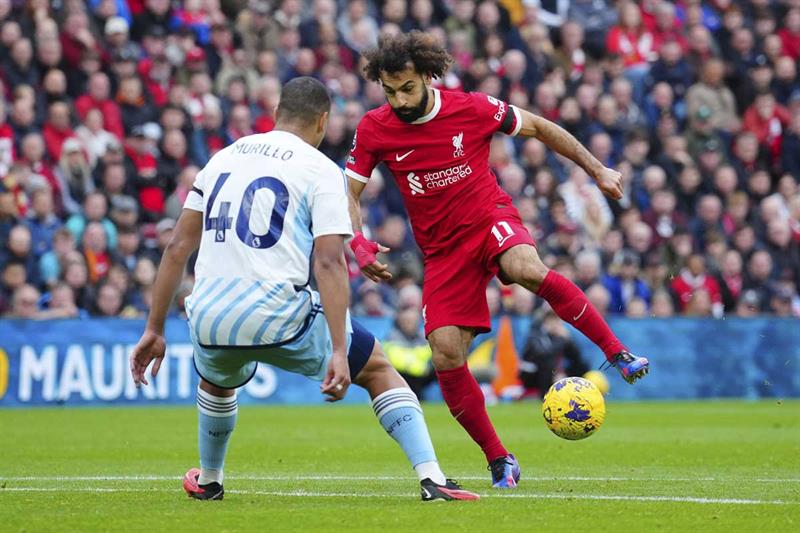
Reasons Why Soccer Is The Hardest Sport
Here are some physical reasons why soccer is often considered one of the hardest sports to play:
- Endurance Demands: Soccer matches last for 90 minutes of continuous play, with players covering an average of 7 miles per game. This requires exceptional cardiovascular endurance to keep up with the pace and intensity of the match from start to finish.
- High Intensity Sprints: Soccer involves a combination of short bursts of sprinting and jogging throughout the game. Players need to rapidly accelerate, decelerate, change direction, and sprint repeatedly, taxing their muscles and cardiovascular system.
- Dynamic Movement Patterns: Players must execute various movements such as running, jumping, kicking, twisting, and turning in different directions, often in quick succession. This requires agility, coordination, and flexibility to perform these movements efficiently while avoiding injuries.
- Physical Contact: Soccer is a contact sport where players frequently engage in challenges for possession of the ball. This physicality can lead to collisions, tackles, and challenges that require strength, balance, and resilience to withstand and recover from.
- Weather Conditions: Soccer is played in various weather conditions, from scorching heat to freezing cold, which can significantly impact players’ physical performance. Enduring extreme temperatures or playing in adverse weather conditions adds an extra layer of physical challenge.
- Recovery Time: Unlike sports with frequent breaks or timeouts, soccer offers limited opportunities for rest during matches. Players must efficiently manage their energy levels and recover on the go, making quick decisions and maintaining physical intensity throughout the game.
These physical demands highlight why soccer is often regarded as one of the most physically demanding sports in the world.
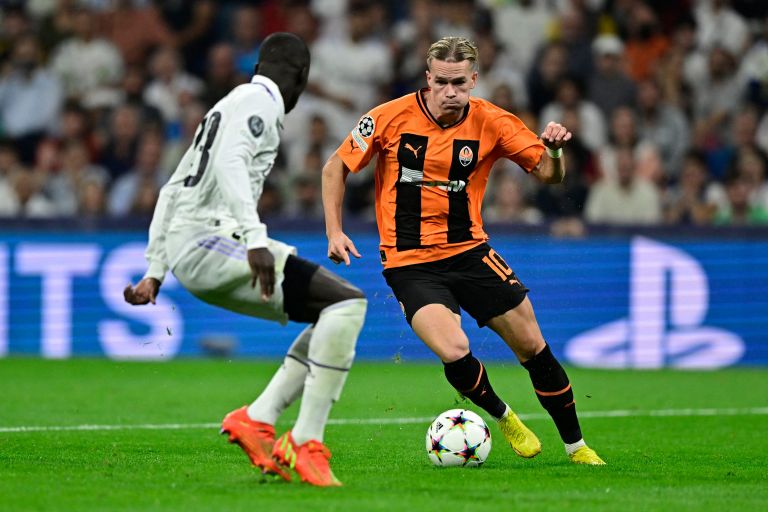
Why Soccer Is The Hardest Sport In The World
Soccer isn’t just physically demanding; it’s mentally challenging as well. Here are some more reasons why soccer is the hardest sport:
- Decision Making Under Pressure: Soccer is a fast-paced game where players must make split-second decisions under intense pressure. Whether it’s deciding to pass, shoot, or dribble, players must constantly analyze the situation, anticipate opponents’ moves, and execute the best course of action, all while under the scrutiny of opposing players and fans.
- Concentration and Focus: Maintaining concentration throughout a 90-minute match is mentally exhausting. Players must stay focused on the game, anticipate potential threats, and react quickly to changes in play. One moment of distraction can result in a costly mistake that affects the outcome of the match.
- Emotional Resilience: Soccer is an emotional rollercoaster, with highs and lows that can impact players’ confidence and morale. Whether it’s dealing with missed opportunities, conceding goals, or facing hostile crowds, players must possess emotional resilience to stay composed and bounce back from setbacks.
- Strategic Thinking: Soccer is as much a game of strategy as it is physical prowess. Coaches and players must devise tactical plans, adjust strategies on the fly, and exploit opponents’ weaknesses while protecting their own. This requires strategic thinking, adaptability, and the ability to read the game effectively.
- Teamwork and Communication: Soccer is a team sport that relies heavily on effective communication and teamwork. Players must work together seamlessly, communicate on the field, and trust their teammates to execute their roles effectively. Building trust and cohesion within a team requires strong leadership and interpersonal skills.
- Handling Pressure Situations: Whether it’s a penalty shootout, a crucial match in a tournament, or a high-stakes game with championship implications, soccer players often find themselves in pressure-packed situations. Managing nerves, controlling emotions, and performing under pressure are essential mental skills for success in soccer.
These mental demands showcase why soccer is not only physically challenging but also mentally demanding, requiring players to possess a combination of skill, resilience, and mental fortitude to excel at the highest level.
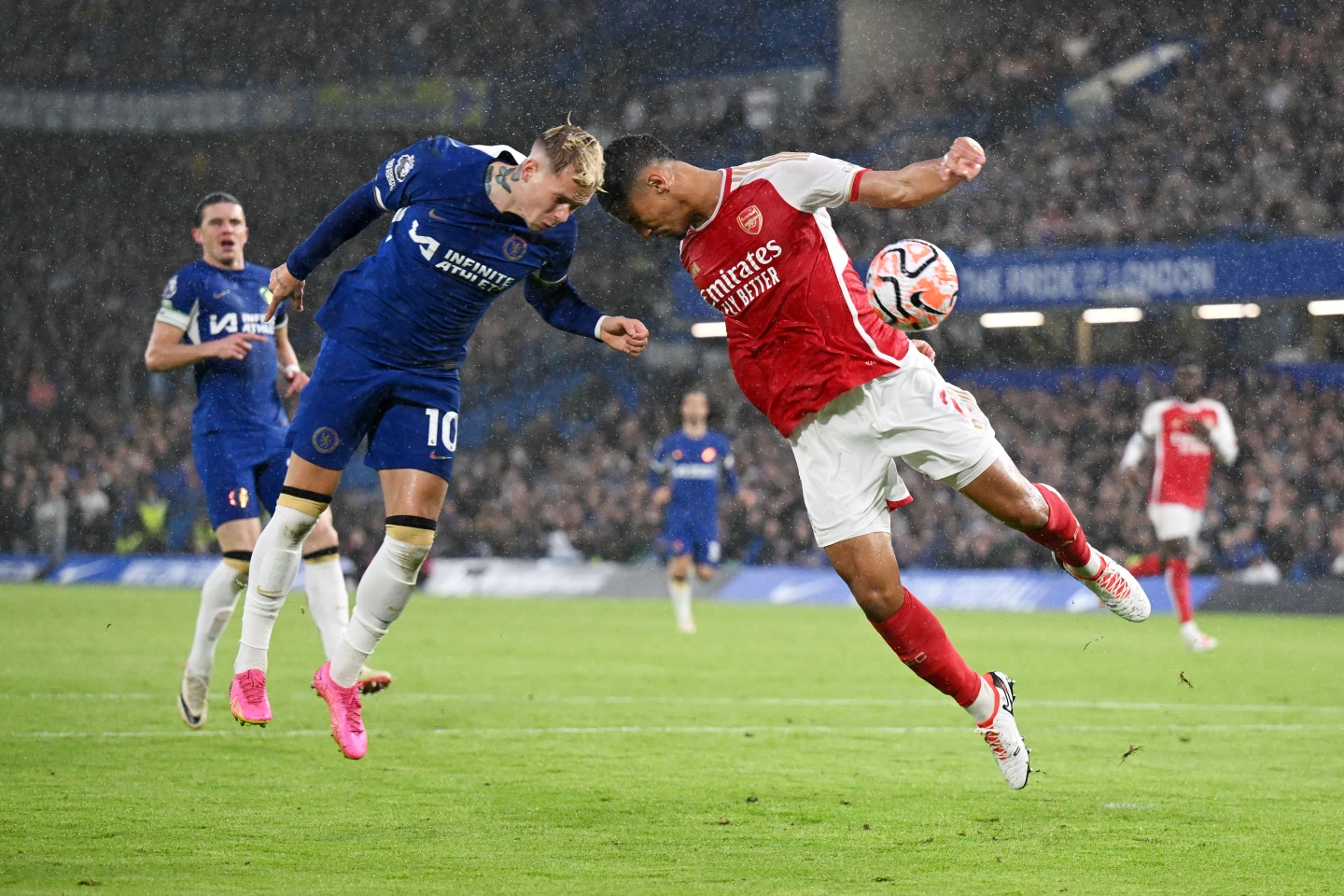
Why Soccer Is One Of The Hardest Sports
Soccer’s challenges extend beyond the physical and mental realms; it’s also incredibly demanding tactically. Here are some more reasons why soccer is a hard to sport play:
- Understanding Complex Tactics: Soccer tactics involve intricate strategies for both offense and defense. Players must grasp the nuances of formations, positional play, pressing, and counter-attacking tactics. Understanding and executing these tactics require intelligence, adaptability, and a deep understanding of the game.
- Reading the Game: Soccer is dynamic and constantly evolving, requiring players to read the game in real-time. This involves anticipating opponents’ moves, recognizing patterns of play, and adjusting positioning and tactics accordingly. Players with a high soccer IQ can influence the flow of the game and exploit tactical vulnerabilities in the opposition.
- Executing Set Plays: Set pieces such as free kicks, corner kicks, and throw-ins offer opportunities to score or defend. Players must execute these set plays with precision, timing, and coordination, following pre-planned strategies designed to create scoring opportunities or prevent conceding goals.
- Adapting to Opponents: Successful teams are able to adapt their tactics based on the strengths and weaknesses of their opponents. This may involve changing formations, pressing higher or dropping deeper, or adjusting marking assignments to neutralize key opposition players. Tactical flexibility is crucial for overcoming different playing styles and strategies.
- Game Management: Managing the flow of the game is essential for success in soccer. This includes controlling possession, dictating tempo, and managing transitions between attack and defense. Coaches and players must make strategic decisions throughout the match, such as when to press aggressively for a goal or when to prioritize defensive stability.
- Analyzing Opponents: In addition to on-field tactics, soccer also requires thorough analysis and scouting of opponents. Coaches and players study video footage, analyze statistics, and identify opponents’ strengths and weaknesses to formulate game plans and exploit tactical advantages.
These tactical demands highlight the complexity of soccer as a sport, requiring players to not only possess technical skill and physical prowess but also tactical intelligence and strategic acumen to succeed at the highest level.
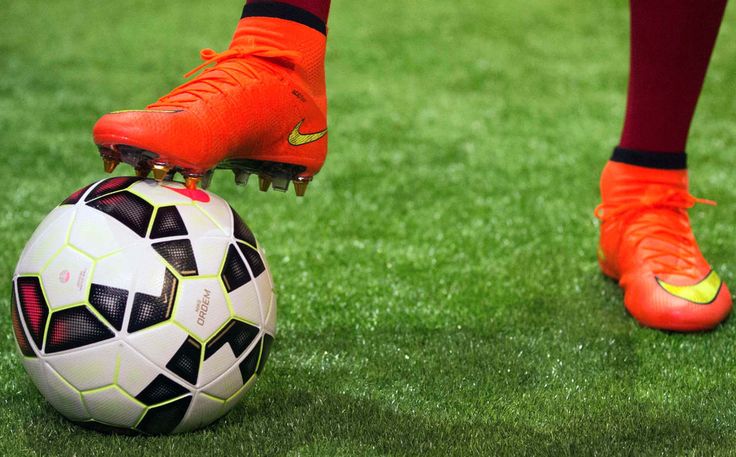
Why Is Soccer The Hardest Sport To Play
Soccer isn’t just physically, mentally, and tactically demanding; it also places significant emotional demands on players. Here’s why:
- Handling Pressure: Soccer players often face immense pressure to perform, whether it’s from coaches, teammates, fans, or their own expectations. The pressure to win matches, score goals, or avoid mistakes can weigh heavily on players, requiring them to manage their emotions and perform under intense scrutiny.
- Dealing with Failure: Soccer is a game of highs and lows, and players must learn to cope with failure and disappointment. Whether it’s missing a crucial penalty kick, conceding a late goal, or losing a match, players must bounce back from setbacks, learn from their mistakes, and maintain confidence in their abilities.
- Maintaining Confidence: Confidence is essential for success in soccer, but it can be fragile and easily shaken by poor performances or criticism. Players must work on building and maintaining their confidence, believing in their abilities even in the face of adversity.
- Handling Criticism: Soccer players are often subjected to criticism from coaches, fans, and the media, which can affect their self-esteem and morale. Learning to filter out constructive criticism from negative feedback and using it to improve is a crucial skill for players to develop.
- Dealing with Injuries: Injuries are an unfortunate reality in soccer, and players must cope with the physical pain, frustration, and disappointment of being sidelined. Rehabilitation can be mentally and emotionally taxing, requiring patience, resilience, and a positive mindset to overcome.
- Balancing Expectations: Soccer players often juggle multiple responsibilities and expectations, whether it’s performing well on the field, managing academic or professional commitments, or dealing with personal challenges. Finding a balance between soccer and other aspects of life can be emotionally demanding and requires strong time management and prioritization skills.
These emotional demands highlight the mental resilience and psychological strength required to thrive in the competitive world of soccer. Players must develop coping mechanisms, mental toughness, and a positive mindset to overcome the emotional challenges they face on and off the field.
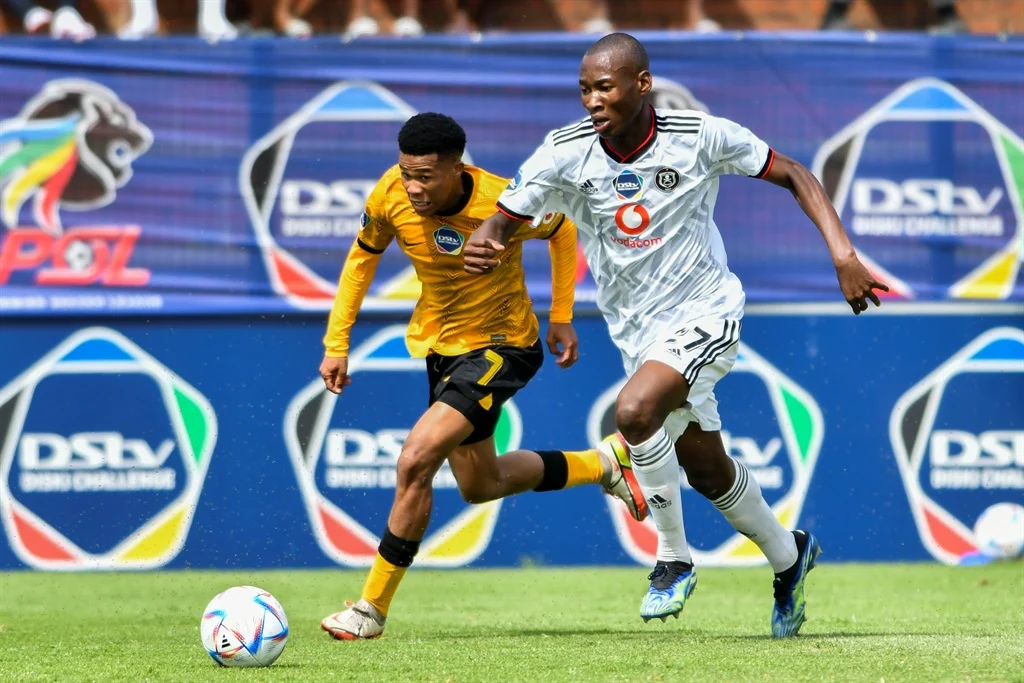
Is Soccer The Hardest Sport To Play
In conclusion, soccer’s reputation as one of the hardest sports is well-deserved, owing to the myriad challenges it presents to players.
From the relentless physical demands and strategic complexities to the mental fortitude and emotional resilience required, soccer tests every aspect of a player’s being.
Yet, it is precisely these challenges that make soccer such a rewarding and exhilarating sport, pushing players to continually strive for greatness and inspiring millions around the globe with its beauty and intensity.

How To Become A Better Soccer Player
If you want to become a better soccer player, check out this 3-minute video. It’s not just another tutorial — it’s designed to help you understand your true potential as a soccer player.
Whether you’re a beginner or advanced player, the video explains how to improve your skills, develop your mindset, increase soccer IQ, and enhance your physical fitness.
You can start playing better, getting more respect from teammates, impressing your coaches, and performing with confidence under pressure.
Watch the video and discover how can your player transformation today:
Improve Your Game Today
Imagine the satisfaction of looking back and realizing that today was the day you decided to push yourself a little harder, run a little faster, and train a little longer. Tomorrow’s success is built on the decisions you make today.
Don’t wait for the perfect moment; make this moment perfect by committing to your improvement. Greatness isn’t found in procrastination — but by taking action today.
Seize the opportunity, embrace the challenge, and make a positive step towards your success. The future you want, is created by the decisions you make today.
If you really want to take another strong step in the right direction…
( continue reading )
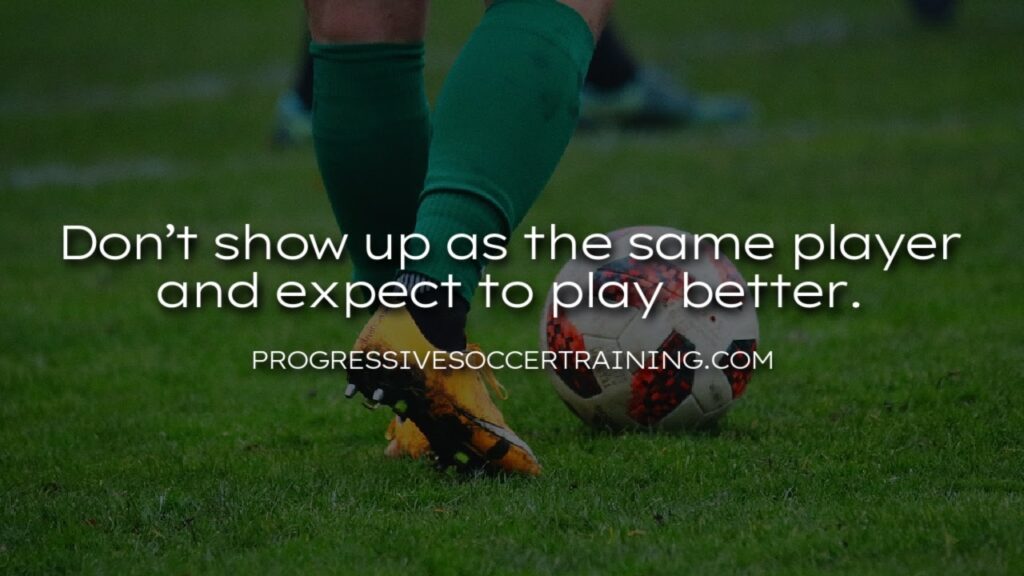
Free Soccer Planner
Are you tired of feeling like you’re not making progress in your soccer skills? Do you want to have a more organized and effective training routine? Do you struggle with setting and achieving your soccer goals?
If you answered yes to any of these questions, the Soccer Success Planner is for you. This planner will help you stay motivated, focused, and help you achieve your goals.
Set clear goals, track your progress, and stay accountable to yourself. With helpful prompts and exercises, you’ll be able to identify your strengths and weaknesses, plan your training sessions, and maximize your performance on the field.
Start taking control of your success in soccer! You can download it here (it’s 100% FREE) – The Soccer Success Planner
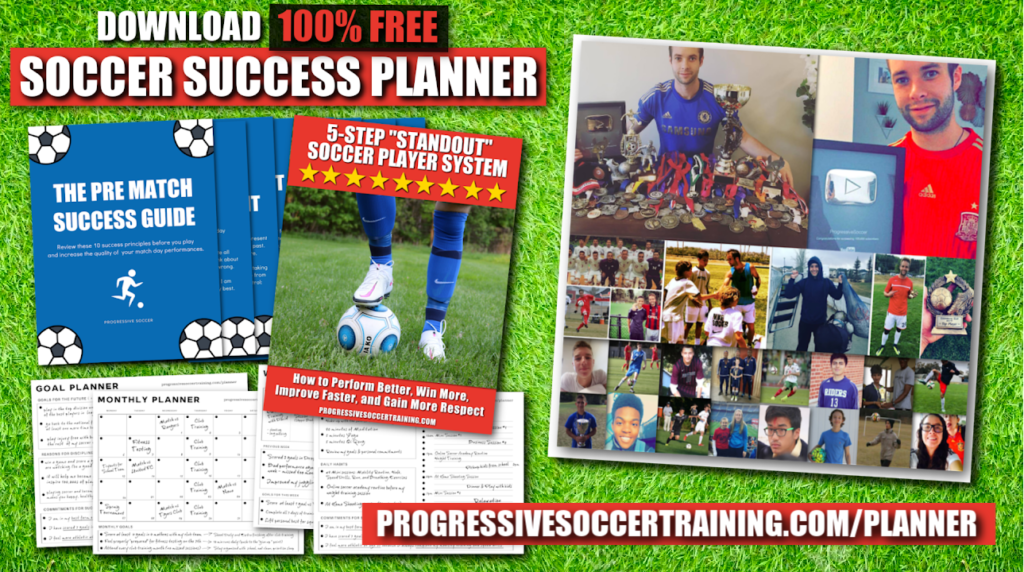
Want To Improve Faster?
Not getting better at soccer? Confused about how to train effectively? Maybe you’re worried that you won’t be properly prepared for your next big opportunity? Or you just want to standout and actually feel respected by your teammates, coaches, and friends?
Whatever struggles you’re going through, The Online Soccer Academy is the best solution to help you overcome obstacles and achieve goals. Thousands of satisfied players have already used this program to achieve incredible results in record time.
With expert coaching, structured player development systems, and easy-to-follow training routines, it’s guaranteed to elevate game.
Join today and start experiencing the transformation you’ve been waiting for! Get more information here – The Online Soccer Academy

About The Author
I used to be a soccer player who struggled with self-confidence. I felt slow, weak, and unmotivated. My coaches didn’t pay much attention to me, my friends laughed at my lack of skills. At one point, I even became so discouraged that I quit the sport altogether.
Enough was enough. I decided to take control of my own development and set out on a journey to become a better soccer player. This path led me on an incredible journey of self-improvement.
I went on to win league and goal-scoring titles, earn awards, lift trophies, and received a college scholarship. I’ve even earned international caps for my country.
I started sharing my knowledge, teaching others how to become the best soccer players they could be. My YouTube channel grew to over 500,000 subscribers. I coached for top youth clubs and men’s teams. Then started my own soccer academy.
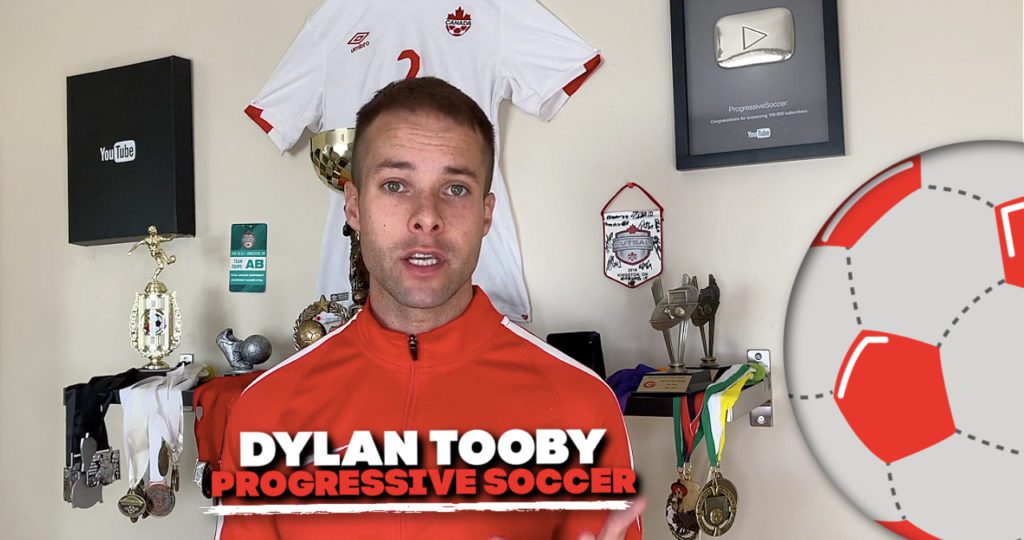
Become A Better Soccer Player
But enough about me, let’s focus on you.
If you’re looking to improve your skills, let’s take your soccer game to the next level. I want to help you make a noticeable change in style of play and overall performance on the field.
I’m passionate about helping players achieve their goals in soccer, and I’d love to be a part of your journey. I can help you reach your goals faster and achieve more in this sport, but I won’t force you. If you’re ready to take the next step, here’s what I suggest you do:
1) Download The Soccer Success Planner (FREE)
2) Apply To The Online Soccer Academy (Limited Spots)

Want more soccer training content?
Here are some related soccer articles (and videos) you might enjoy:
How To Become A Better Soccer Player in 1 Day
From Failure To Top Goal Scorer
Wishing You Success In Soccer
Coach Dylan
Progressive Soccer
Thank you for reading this article:
24 Reasons Why Soccer Is The Hardest Sport
